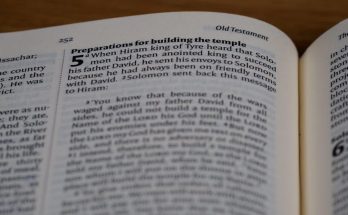Venkateswara Suprabhatam: Telugu Meaning and Significance
The Venkateswara Suprabhatam holds immense significance for devotees seeking blessings. Reciting it, especially on Saturday mornings, is considered auspicious. Understanding the Telugu meaning enhances devotion. The Suprabhatam is available in Telugu PDF format, aiding accessibility and comprehension for those who prefer to read along.
The Sri Venkateswara Suprabhatam is a sacred hymn, a cherished prayer sung at dawn to awaken Lord Venkateswara, also known as Srinivasa, at the Tirumala temple. This Suprabhatam comprises a collection of Sanskrit verses traditionally recited to gently rouse the deity from his divine slumber, preparing him for the day’s worship and the influx of devotees seeking his blessings.
The composition isn’t just a wake-up call; it’s a devotional offering, a cascade of praises that describe the beauty of the awakening dawn, the gathering of devotees, and the auspiciousness of the morning atmosphere. It sets a tone of reverence and anticipation for the divine darshan, or sight of the Lord.
The Venkateswara Suprabhatam isn’t merely a recitation; it’s an immersive experience that connects devotees to the divine, fostering a sense of peace, devotion, and spiritual upliftment. Its significance lies in its ability to invoke the presence of Lord Venkateswara and to start the day with auspiciousness and blessings.
Meaning of Suprabhatam
The word “Suprabhatam” itself is derived from Sanskrit, carrying a profound and auspicious meaning. Broken down, “Su” signifies “auspicious,” “good,” or “well,” while “Prabhatam” refers to “dawn,” “morning,” or “the breaking of light.” Therefore, “Suprabhatam” literally translates to “auspicious dawn” or “good morning.”
In the context of Hindu devotional practice, particularly concerning deities, Suprabhatam signifies a prayer or hymn recited at the break of dawn to awaken the god or goddess. It’s not merely a literal awakening, but a symbolic one, invoking the deity’s presence and blessings for the day ahead. The verses often describe the beauty of the morning, the sounds of nature awakening, and the gathering of devotees eager to offer their prayers.
Reciting or listening to a Suprabhatam is considered a highly auspicious way to start the day, imbuing it with positivity, spirituality, and the divine grace of the deity. It sets a tone of reverence and devotion, fostering a connection with the divine realm.
The Four Parts of Venkateswara Suprabhatam
The Sri Venkateswara Suprabhatam is not just a single, continuous prayer, but rather a composition divided into four distinct sections, each with its own unique purpose and significance. These four parts are: Suprabhatam (the Awakening), Stotram (Hymns of Praise), Prapatti (Surrender), and Mangalasasanam (Benediction). Understanding these divisions allows devotees to appreciate the comprehensive nature of the prayer.
The first part, Suprabhatam, consists of 29 slokas which is the core “awakening” section, directly addressing Lord Venkateswara and gently urging Him to awaken from His divine slumber. The Stotram is composed of 11 slokas which are hymns in praise of the Lord, extolling His virtues, qualities, and divine powers. Prapatti is an act of complete surrender to the Lord. Finally, Mangalasasanam offers benediction and prayers for the well-being of all. Each part contributes to the overall experience of devotion and reverence.
Suprabhatam (Awakening)
The Suprabhatam section, comprising 29 slokas, forms the heart of the Venkateswara Suprabhatam. Its primary purpose is to gently awaken Lord Venkateswara from His divine sleep, ushering in a new day filled with blessings and opportunities for devotees. The verses paint a vivid picture of the awakening of nature – the dawn breaking, birds singing, and fragrant breezes blowing – all serving as gentle reminders of the start of a new day.

These verses also depict devotees gathering at the temple, eager to offer their prayers and seek the Lord’s blessings. The slokas use tender and respectful language, addressing the Lord with endearing epithets and highlighting His divine attributes. By reciting these verses, devotees not only participate in the symbolic awakening of the deity but also awaken their own inner consciousness, preparing themselves for a day filled with devotion and good deeds. The Suprabhatam sets the tone for the entire prayer, creating an atmosphere of reverence and anticipation.
Stotram (Hymns of Praise)
The Stotram section of the Venkateswara Suprabhatam consists of 11 slokas, dedicated entirely to praising Lord Venkateswara. These are hymns that extol the virtues, qualities, and divine powers of the deity, captivating the listener with their lyrical beauty and profound meaning. The Stotram serves as an expression of deep reverence and admiration, recognizing the Lord as the supreme protector and benefactor of the universe.
Each verse meticulously describes various aspects of Lord Venkateswara, highlighting His compassion, grace, and ability to alleviate suffering. By reciting the Stotram, devotees immerse themselves in the divine presence, allowing the hymns to resonate within their hearts and minds. The powerful verses invoke a sense of awe and devotion, strengthening the bond between the devotee and the Lord. The Stotram acts as a reminder of the Lord’s greatness, inspiring devotees to lead a life of righteousness and faith.

Prapatti (Surrender)
Prapatti, as a part of the Venkateswara Suprabhatam, embodies the complete surrender to Lord Venkateswara. It signifies the devotee’s unconditional offering of themselves, their actions, and their very existence to the divine will. This section highlights the essence of devotion, emphasizing the importance of relinquishing ego and trusting in the Lord’s grace for guidance and protection.
Through Prapatti, devotees acknowledge their limitations and express their dependence on the Lord’s divine intervention. It is a powerful act of humility, recognizing that true liberation comes from surrendering to a higher power. The verses within this section articulate the devotee’s heartfelt plea for acceptance and guidance, seeking refuge in the Lord’s boundless compassion. By engaging in Prapatti, individuals cultivate a deep sense of inner peace, knowing they are under the care of the supreme protector.
Mangalasasanam (Benediction)
Mangalasasanam, the concluding section of the Venkateswara Suprabhatam, represents a heartfelt prayer for the well-being and prosperity of all. It is a benediction offered to Lord Venkateswara, expressing gratitude and seeking his continued blessings upon the devotees and the entire universe. This section encapsulates the spirit of selfless devotion, extending wishes for happiness, peace, and spiritual growth to all beings.
The verses of Mangalasasanam are filled with auspicious pronouncements, invoking the Lord’s divine grace to shower abundance and protection upon those who seek refuge in him. It serves as a reminder of the interconnectedness of all life and the importance of offering prayers for the collective good. By reciting Mangalasasanam, devotees reaffirm their commitment to living a life of righteousness, compassion, and service, striving to embody the Lord’s divine qualities in their own actions and thoughts. It is a fitting conclusion to the Suprabhatam, leaving devotees with a sense of hope, inspiration, and renewed faith in the power of divine blessings.
Significance of Reciting Venkateswara Suprabhatam

Reciting the Venkateswara Suprabhatam holds profound significance for devotees seeking spiritual upliftment and divine blessings. It is considered an auspicious way to start the day, invoking the presence of Lord Venkateswara and filling the atmosphere with positive energy. The Suprabhatam serves as a reminder of the Lord’s boundless compassion and his willingness to shower grace upon those who approach him with devotion.
The verses of the Suprabhatam are filled with rich symbolism and profound philosophical insights, offering guidance on the path to self-realization. By reciting these verses, devotees align themselves with the divine vibrations of the universe, fostering inner peace, clarity, and a deeper connection with the Supreme Being. The Suprabhatam also promotes a sense of community and shared devotion, as families and individuals come together to sing the Lord’s praises and seek his blessings. Its recitation is believed to purify the mind, remove obstacles, and bestow prosperity, health, and spiritual growth upon those who engage in it with sincerity and faith. Ultimately, reciting the Venkateswara Suprabhatam is a transformative practice that brings devotees closer to the divine and helps them lead a more fulfilling and meaningful life.
Benefits of Reciting on Saturday Mornings
Reciting the Venkateswara Suprabhatam on Saturday mornings is considered particularly auspicious, amplifying its already potent benefits. Saturday is dedicated to Lord Venkateswara, making it an ideal time to seek his blessings and express gratitude. This practice is believed to usher in a week filled with positivity, removing obstacles and ensuring success in endeavors.
The early morning recitation, before the start of daily activities, sets a spiritual tone, influencing thoughts and actions throughout the day. It fosters a sense of calm and focus, promoting mental clarity and emotional stability. Devotees find that regular Saturday morning recitations enhance their connection with the divine, deepening their faith and inspiring virtuous conduct. Moreover, it is believed to attract prosperity, health, and harmonious relationships. The act of waking up early and dedicating oneself to prayer demonstrates commitment and devotion, qualities that the Lord is said to reward with abundant grace, thereby enriching the lives of sincere devotees.
Availability of Venkateswara Suprabhatam in Telugu PDF
The Venkateswara Suprabhatam is widely accessible in Telugu PDF format, catering to the devotional needs of Telugu-speaking individuals. This digital availability ensures that devotees can easily access the sacred verses, irrespective of their location. Numerous websites and online libraries offer free downloads of the Telugu PDF, making it convenient for devotees to engage with the Suprabhatam.
These PDFs often include the Telugu script, allowing for accurate pronunciation and recitation. Some versions also incorporate the meaning of each verse in Telugu, aiding comprehension and fostering a deeper connection with the prayer. The PDF format is compatible with various devices, including smartphones, tablets, and computers, enabling devotees to read or listen to the Suprabhatam anytime, anywhere. This widespread availability plays a crucial role in promoting and preserving the tradition of reciting the Venkateswara Suprabhatam among Telugu-speaking communities worldwide. It also facilitates learning and sharing the sacred verses with future generations, ensuring the continuity of this cherished devotional practice.
Where to Find Telugu Lyrics and Meanings

Devotees seeking the Telugu lyrics and meanings of the Venkateswara Suprabhatam have several readily available resources. Numerous websites dedicated to Hindu devotional literature offer the complete Telugu lyrics, often presented in a clear and easily readable format. These websites frequently provide verse-by-verse meanings in Telugu, enabling a deeper understanding of the prayer’s significance.
Additionally, many spiritual organizations and temples make the lyrics and meanings accessible through their websites or publications. Books containing Hindu prayers and hymns often include the Venkateswara Suprabhatam with Telugu translations. Online forums and communities dedicated to Telugu culture and spirituality are also valuable sources for finding the lyrics and meanings, as members often share resources and insights. Furthermore, mobile apps focused on devotional content typically feature the Suprabhatam with Telugu lyrics and interpretations. By utilizing these diverse resources, devotees can easily access and comprehend the sacred verses, enriching their spiritual experience and connection with Lord Venkateswara.
Authorship of Venkateswara Suprabhatam
The Venkateswara Suprabhatam is traditionally attributed to Prativadi Bhayankara Annanacharya, a revered Vaishnava saint and scholar who lived in the 14th century. Annanacharya, also known as Annamayya, was a prolific composer of devotional songs dedicated to Lord Venkateswara, the presiding deity of the Tirumala temple. He is believed to have composed over 32,000 kirtanas or devotional songs in Telugu, many of which are still sung today.
While Annamayya is widely credited with composing the Venkateswara Suprabhatam, some scholars suggest that the current version may be a compilation of verses from various sources, including Annamayya’s compositions and other traditional hymns. Nevertheless, Annamayya’s immense contribution to the Venkateswara devotional literature is undeniable, and he remains the primary figure associated with the creation and popularization of the Suprabhatam. His devotion and musical genius have made the Venkateswara Suprabhatam a timeless and cherished prayer for millions of devotees.
Recitation and Audio Resources
The Venkateswara Suprabhatam is widely available in audio format, making it easy for devotees to listen and recite along. Numerous recordings by renowned vocalists and musicians can be found on various online platforms such as YouTube, Spotify, and other devotional music streaming services. These audio resources often include the Telugu lyrics displayed on screen, aiding comprehension and pronunciation.
Furthermore, many websites and mobile applications offer the Venkateswara Suprabhatam with synchronized lyrics and translations in multiple languages, including English. These interactive resources allow users to understand the meaning of each verse while listening to the recitation. For those seeking a more traditional experience, live recitations of the Suprabhatam can be heard at the Tirumala temple every morning, creating a spiritually uplifting atmosphere. Participating in or listening to these recitations is considered highly auspicious.
Additionally, many families play the Venkateswara Suprabhatam every morning in their homes, creating a peaceful and devotional ambiance to start the day.



